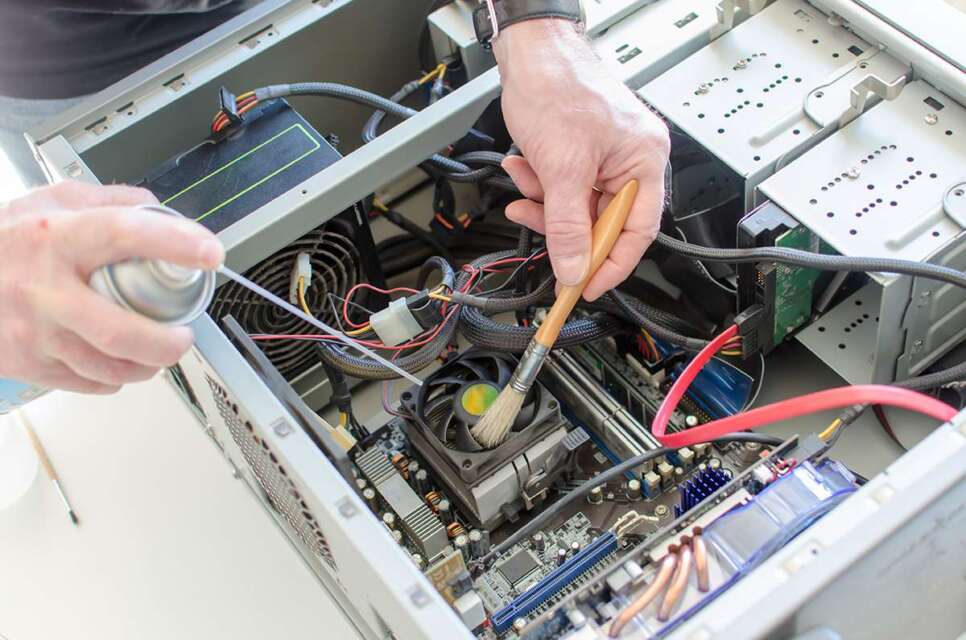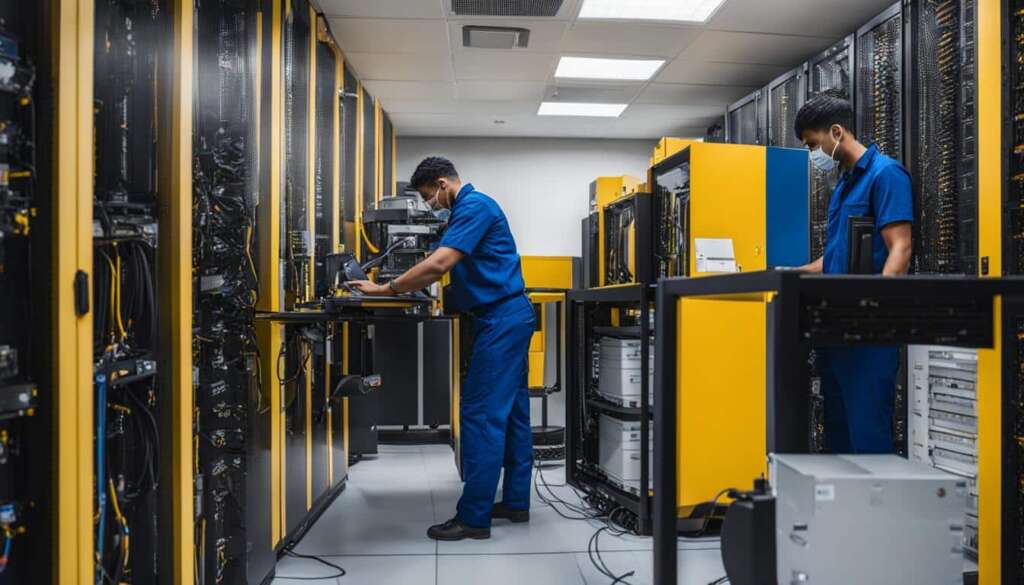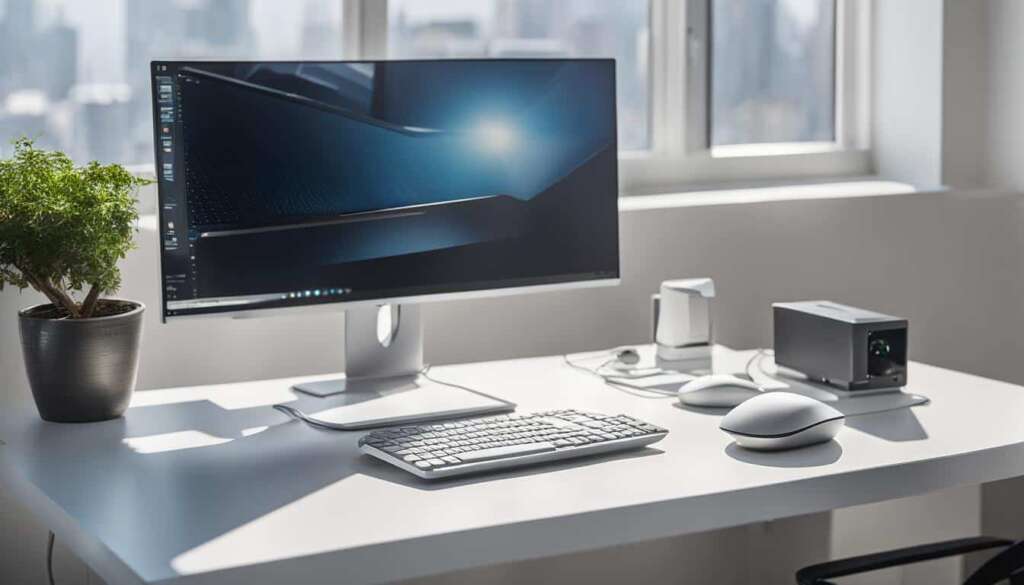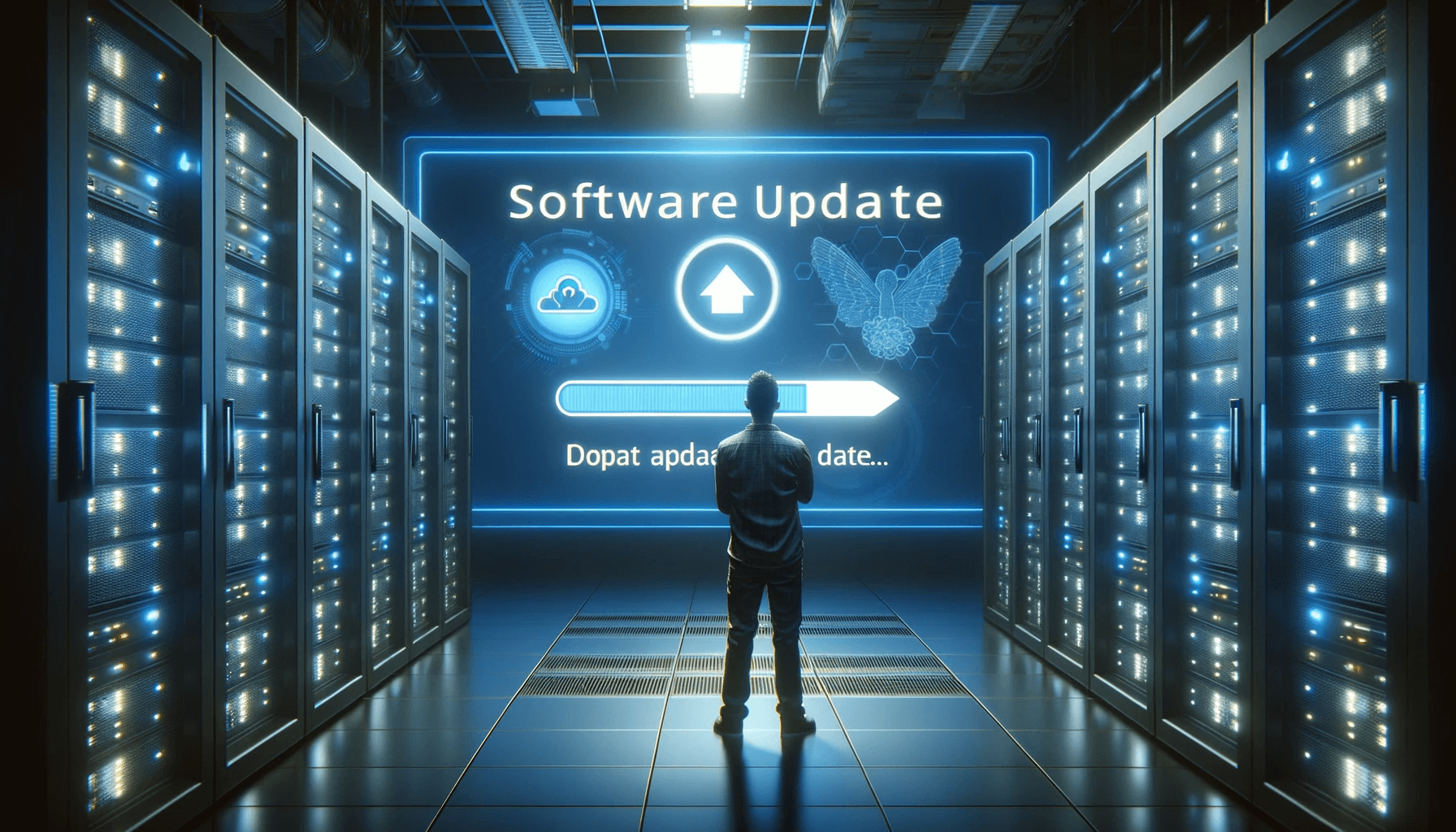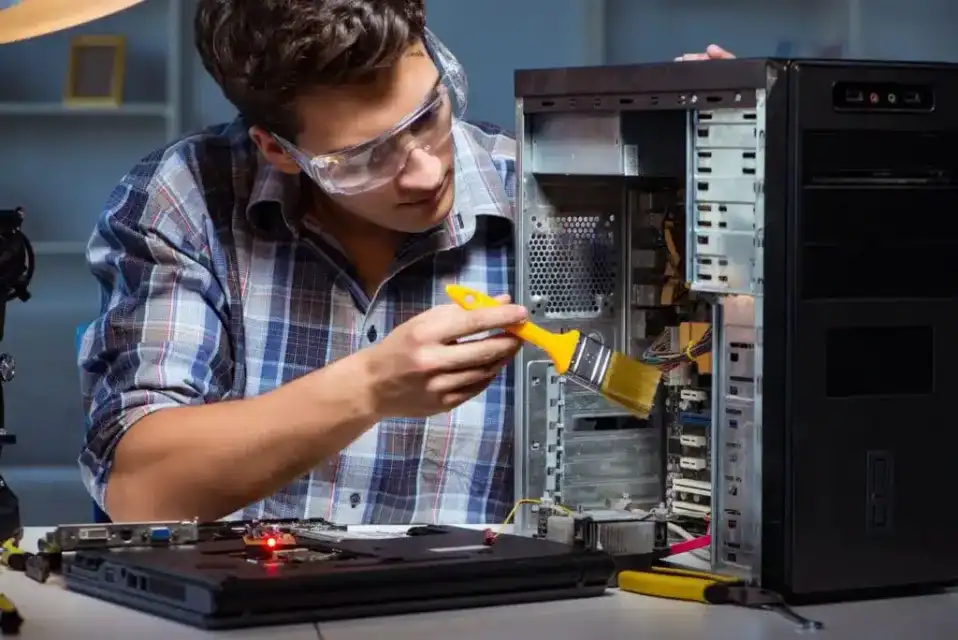803
Have you ever wondered what constitutes or even defines a healthy lifestyle? A number of factors, precautions, and regular assessment of the way you are leading your life and the choices you make are all a part of what defines your lifestyle. Now, whether it is a good one or bad one, it is completely up to the results and consequences of it.
You are a complex machine and your body demands care and maintenance from time to time; in fact, all machines do. Especially amidst the global pandemic of COVID-19 which has redefined the very way of life we have always been used to, the need for taking better care of yourself has increased more than ever before. Just as you take care of yourself along with your other possessions like your car, house, property, business, etc. there is something that escapes your caring attention often.
And now that we have your attention, when was the last time you actually did some maintenance on your PC? Scratch that, when was the last time when you ran a system check on your PC to assess the overall health of your machine?
Ashamed much? Well, you should be. You PC is always there for you whenever you need it. From timely completion of your academic assignments to having a hardcore gaming session all night long to pulling an all-nighter to pass that final exam, your PC has always been there for you as a true companion. Now, it is your turn. You must shift your focus towards the health and general/overall maintenance of your PC. We have compiled a number of useful common and technical tips that will help you take better care of your PC. But just to change your mind a bit, here are some benefits of taking care of your PC and performing regular maintenance on a regular and punctual basis.

Benefits of PC Maintenance:
- It primarily guarantees a longer life for your PC and enables it to deliver consistent performance.
- With regular software-based updates and adequate protection, you can save your precious data from being stolen or corrupted by a malware or virus. It also protects your data from hackers.
- Regular maintenance ensures backing up of data that comes in handy in case your PC crashes or gets damaged. It can be stored in the cloud or a remote server; doing so takes a huge load off of your PC.
- We want nothing but the best from our PCs, this includes fast processing speed. So regular maintenance and installation of anti-virus programs and updating software and drivers regularly enables the PC to run smoothly and deliver that speed you can boast about to your friends.
- It can help identify errors and faults beforehand; this makes it easier to take actions preemptively and save your PC from severe damage that may cost you a pretty penny to recover from. Detection of issues before they become full-fledged problems is something anyone with an expensive and costly machine can benefit from.
- If you want your PC to keep performing just as it did on day one, then regular maintenance is the only way to go.
Types of PC Maintenance:
Not so fast…. In order to get a firm grip on the concept of PC maintenance, you need to be aware of the four basic typed of PC maintenance. This includes:1. Predictive Maintenance:
Predictive maintenance involves the use of diagnostic tools. These tools can help in anticipation of possible failures and issues that can turn into costly repairs.2. Preventive Maintenance:
Preventive maintenance involves the use of anti-virus and using ways to reduce the overall load of your PC by freeing up space and backing your data on cloud sources. It can help in preventing possible device failure, prolonging the life of various internal components, and improve the functionality of the system.3. Corrective Maintenance:
If the previous two types of maintenances have failed, opt for corrective maintenance. So you are basically replacing parts or components (either internal or external) in case of an issue persisting even after you did everything that should have possibly resolved that issue.4. Evolutionary Maintenance:
The final type of maintenance which will help in making your PC better than before. Along with upgrading softwares, it also concerns internal and external components so you can add up some juice to your system to make it stronger than before.PC Maintenance Tips:
Listed below is the compilation of both; technical and non-technical PC tips that will improve the overall health of your PC and let it perform efficiently for a longer duration of time.
1. Keep Your PC Clean from the Inside:
Aside from complete system failure, the main reason for the replacement of PCs is that it displays poor performance and runs slowly. If your PC is doing the same while you have been using it for the same purpose as you first purchased it for, chances are that it needs a thorough cleaning. You can start by identifying softwares and programs that you don’t use anymore. They keep adding up in the compute and horde memory that decreases the speed and performance of the PC. Identify the programs you haven’t used in the past few months (4-6) and uninstall them from ‘Control Panel’ to remove them permanently and free up some space. Similarly, cookies and data from websites you visit keep getting saved in your PC so the site may load faster next time you visit it. Although the intention is fair, these temporary files keep adding up and occupy memory. This, in turn, slows down the loading time of other applications. You can delete those temporary files and clear up almost 10% of space (or even more). Simply right-click on the ‘My Computer’ icon and go to properties. Do ‘Disk Cleanup’ for all users with will calculate the space you will be able to free up and present you with more options to select from to clean up more memory. From here, you can delete all but most recent system restores points. The cleanup may take some time but it will release a significant portion of hoarded memory which will display visible results and changes in the speed and performance.2. Defrag:
Defrag is another important step that can significantly improve the performance of your PC which the majority of PC users are unaware of. You see, when we store a file, it gets stored and written in disk blocks. We keep adding and deleting files over time, which cause new files to be defragmented and stored in non-adjacent blocks. For example, a 5MB .jpg photo can be scattered across almost 5000 disk blocks. When we want to open that scattered file, it takes the computer quite a trip to gather data from all the data blocks that are scattered across the entire memory. You can defrag your PC by clicking on ‘Defragment Now’ in the properties tab of my computer. You can also set it as an automatically scheduled task once a week.3. Check for Malware and Viruses:
It is quite surprising that even in today’s time; people have to be convinced to use anti-virus, anti-spyware, and other protective software. Security software can scan your PC for any possible viruses, worms, or identify intrusion from hackers (spyware). This not only protects your private data but also protects the performance of your PC from being compromised. It is advised to follow the first two steps before getting down to this one. Since you must have already freed up quite some space and defragged your data blocks, this should take less time than the previous two steps.4. Cleanliness:
That’s right folks, just as you look after your personal hygiene, you should also do the same for your PC. It’s not as easy as giving it a bath, but the process is quite thorough. Primarily, you are targeting openings and easy to clean devices like keyboard and mouse. You can clean the open surfaces of PC and accessories by using an Anti-Static Machine Cleaner Liquid that you can easily find in your local hardware or computer spare-part store. Take a lint-free piece of cloth and damp it with the liquid. Rub it across the open surfaces and spray it in the gaps where the cloth can reach easily. You can do the same for cleaning the monitor; just keep a light hand over the LCD screen. For hard to reach spaces, you can use a can of compressed air (also available at hardware stores) to clean the area under the keys of the keyboard and the optical opening of the mouse. Do the same for ports and fan. Clogged ports and exhaust reduce the flow of air to and from the PC which overheats it, which in turn decreases the performance of the PC. If you have a wind/leaf blower, use it to clean your CPU from time to time. Also, try not to eat on top of your PC. The golden rule is ‘Keep food and beverages away from your PC’. Think of the consequences in case of a major spill on top of your system.5. Give it a Rest:
We know you set out to make a machine so powerful that it will satisfy the primitive urge of gaming 24/7; however, this is not the case. Just as you need rest, so does your machine. Give it a rest from time to time and let it breathe freely. This is especially important in case of laptops; as overcharging the device will damage the battery which will result in smaller battery backup or abrupt shutting off of your machine.6. Use the Tools Provided by Windows and Free Software:
If you are using Windows, then you are already blessed with several free softwares that will enable you to perform soft maintenance of your PC yourself. Get familiar with Disk Cleanup, Drive Optimizer, Task Manager, and File History. Use free software to optimize your PC and keep a check on the performance of the system. Using those tools, you can identify programs that are hogging up too much memory and remove them so your PC can breathe a sigh of relief. Also, use freely available cloud services like Google Drive and Microsoft OneDrive to store your important documents online. This will free up some space from your PC and allow you to access those files remotely from anywhere. You can also purchase more space to backup your data online if you want to. Avoid installing unnecessary software or programs that are not from trusted service providers. Especially avoid those ‘Is you PC running slowly’ ads that promise to improve the speed of your PC almost miraculously. Trust us when we say they don’t.7. General Tips:
And finally, a few general tips that you can deploy to prevent your PC from any possible damage that is preventable.- Keep magnets away from your PC.
- Do not connect with unknown Wi-Fi networks.
- Keep your Firewall running the entire time your PC is on.
- Always shut your PC down properly, even if it is taking a few minutes. Turn the power off afterwards.
- Always keep anti-virus running. Regularly run system checks in case your PC has caught a bug.
- If you can, use an external drive to store the excessive data that may be taking too much space but serving no purpose.
- Keep an eye open for updates. This includes updates for softwares, drivers, OS, and especially anti-virus softwares.
- Clean the disk periodically. Use a disk space analyzing tool for this purpose.
- Monitor the temperature of your system. This primarily concerns CPU and GPU.

